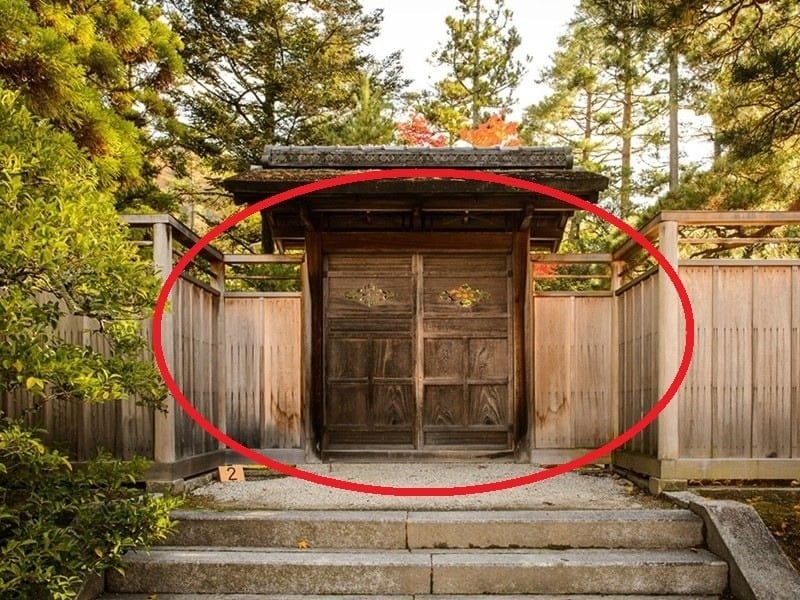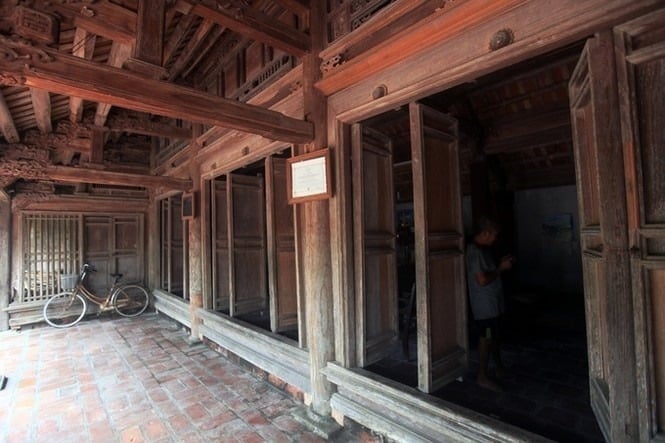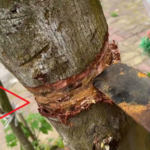The placement of the main entrance is of utmost importance in residential construction. Hence, when designing a house, homeowners should consult Feng Shui experts to determine the optimal location for the main door. This will attract wealth and create favorable conditions for the family’s prosperity and well-being. According to traditional Feng Shui principles, having two large doors or gates in a house is usually discouraged as it can lead to financial and luck dissipation.
Moreover, the classical Feng Shui perspective suggests that in older homes, there were often smaller back or side doors leading outside. These doors were not considered the main entrance but rather served as secondary doors to regulate airflow and ensure the preservation of wealth and good fortune.
Which door is considered the main entrance in a house with two doors?
The number of doors in a house should be assessed based on the function of each door. There are two important cases to distinguish:
Two Similar Main Entrances
When a house has two main entrances with similar purposes, dimensions, and designs, determining which one is the primary entrance can be challenging. In such cases, if both doors serve as major entry and exit points and are designed to be large and aesthetically pleasing, it may create ambiguity in distinguishing the main door from the secondary one.
Two Distinctive Doors
The other scenario is when a house has two doors but with a clear distinction in size and function between the main and secondary doors. The main entrance is typically the largest door, used for welcoming guests, and is usually located for easy access from the main road. The secondary door may be smaller and used for specific purposes like housekeeping or private activities.
In Feng Shui, the fundamental principle is that a house should not have two main entrances. Homeowners need to clearly establish which door is the main entrance and which is secondary to avoid any adverse effects on wealth and luck. Having multiple main entrances can lead to the dispersion of positive energy and negatively impact the Feng Shui of the home.

A clear distinction between the main and secondary doors in terms of size and function.
Understanding Two Main Entrances in a House According to Classical and Modern Feng Shui
Classical Perspective
In the ancient belief system, having two main entrances in a house could signify disharmony within the family. One door is used to enter the house, while the other is used to exit, symbolizing differences and a lack of harmony in family relationships. In families with conflicts, individuals might use separate doors to avoid encountering each other, reducing awkward interactions.
However, this solution is only temporary and could exacerbate the conflict instead of resolving it. Our ancestors valued family harmony and considered it essential for achieving happiness and prosperity. Therefore, frequent disharmony within the family would hinder long-term growth and prosperity.
Modern Interpretation
The modern explanation for this belief is based on scientific and theoretical grounds. Ancients believed that having two main entrances could facilitate theft. Intruders could easily find an escape route through another door, increasing the risk of losing valuables and compromising personal safety.
If there is no guard or occupant present in the house, thieves can break in more effortlessly. Hence, the ancient recommendation was to avoid constructing two main entrances in a house, even with the presence of a smaller secondary door. This advice still holds value and aligns with modern circumstances, emphasizing the importance of security and deterring theft.

The modern interpretation considers the scientific and theoretical aspects of the belief.
Remedies for a House with Two Main Entrances
Using Curtains and Room Dividers
Placing curtains or room dividers is a simple yet effective method to mitigate the negative impact of having two interconnected doors. Curtains help prevent the dissipation of positive energy, while room dividers create an “invisible wall,” reducing the interconnectivity between the two doors.
Feng Shui Remedies: Polyhedral Balls and Five-Emperor Coins
Polyhedral balls and Five-Emperor Coins are useful Feng Shui remedies to counter the issue of interconnected doors. After proper energy infusion, the Five-Emperor Coins, along with the polyhedral balls, can be placed at the doors to regulate energy flow and enhance Feng Shui stability.
Using Three Gods of Fortune or Dragon Turtle Statues for Protection
To counteract the negative influence of two interconnected doors, homeowners can place Three Gods of Fortune or Dragon Turtle statues behind the doors for protection. This helps ward off negative energies and brings peace and prosperity to the household.



































